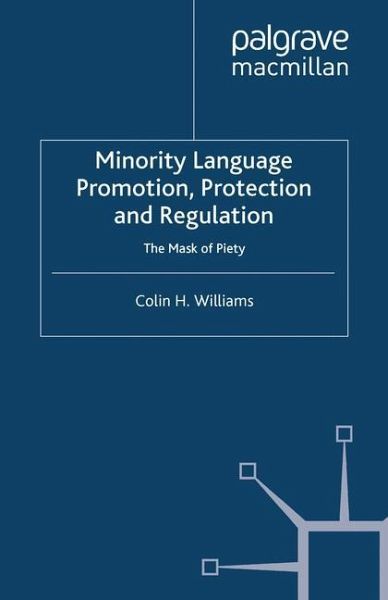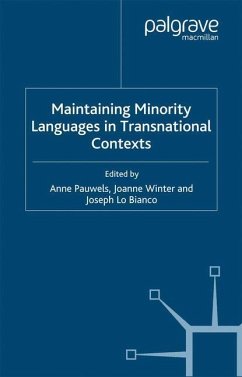
Minority Language Promotion, Protection and Regulation
The Mask of Piety
Versandkostenfrei!
Versandfertig in 6-10 Tagen
76,99 €
inkl. MwSt.

PAYBACK Punkte
38 °P sammeln!
This is an analysis of the promises and contradictions surrounding contemporary minority language policy. It draws on theoretical and real-world perspectives and interviews with key players within European institutions together with field work undertaken principally in Ireland, Scotland, Wales, the Basque Country, Catalonia and Canada.














